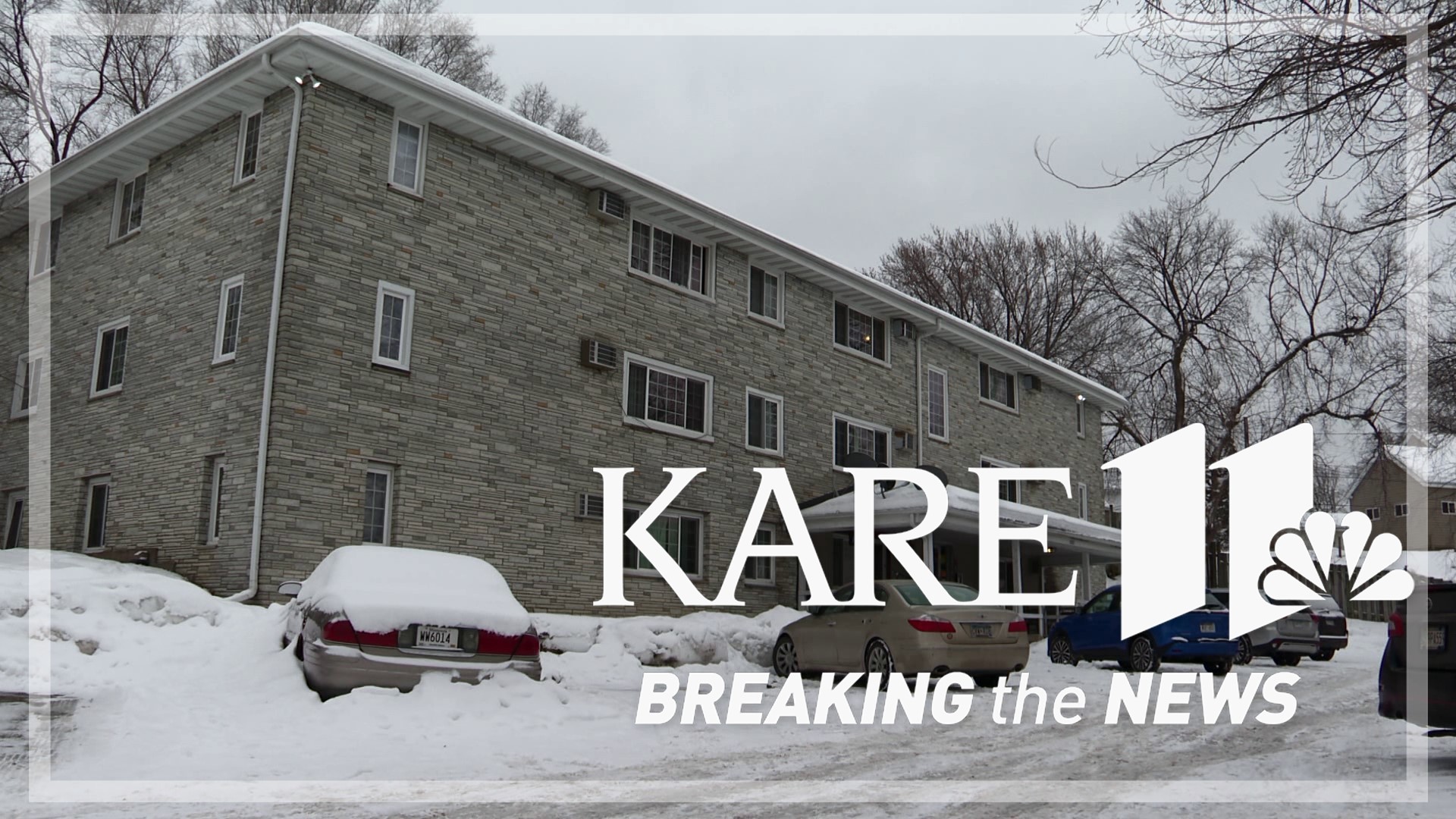MINNEAPOLIS — The eyes may be the window to the soul, but Jim Johnston’s view outside his window fills the soul.
“I think my favorite part of it is the fact that I get to see these really extraordinary sunsets,”
He’s called his Columbia Heights apartment home since April, but before that, he had a different view.
“Where would I wake up? Usually in a shelter,” he said. “Yep. Usually in a shelter.”
He had been homeless for about eight years, but an opportunity came during the pandemic. He was going about his normal routine of checking into the shelter for the night when someone asked him how old he was, which was 68 at the time.
He was qualified to go to one of the county's COVID hotels to separate people who were vulnerable or sick. One of the properties he stayed at was the Metro Inn Motel in south Minneapolis.
“The county bought this motel back in late 2020,” said Julia Welle Ayres, director of Housing Development and Finance for Hennepin County.
It was there where he met Addie Hammond, a housing-focused case manager whose goal was to get folks in the county’s COVID hotels into permanent housing.
“I can't with words express the gratitude I feel for Addie,” said Johnston. “It's like being taken care of.”
“My goal is to empower them. And to help them get to the next step,” said Hammond.
Hammond said the COVID hotels helped her connect with clients on a daily basis.
“Sometimes I will have to go knock on his hotel room door to see him because he was avoiding it,” she said.
The county bought a total of five properties, which was made possible with about $25 million in federal pandemic recovery funding.
A total of 1,137 people who were homeless stayed in the properties at one point between March 2020 and March 2022 for protective shelter, according to the county.
Once vaccinations for people who were unsheltered rolled out in February of 2021, the county stopped bringing people to the hotels. At that time, there were 540 people staying there.
Out of that group, 464 managed to find permanent housing through case managers like Addie, in addition to the county’s Hotel to Housing program. About 97% are still in permanent housing, according to the county.
Originally, the properties were used to house people who were vulnerable or sick. Now, the county is transitioning the properties into single-unit, low-income housing.
“We took those funds to create these permanent, lasting investments,” Welle Ayres said.
Welle Ayres said that in the long run, investing in deeply affordable housing will save the county more money than what they would spend sheltering people. Welle Ayres also believes the model is already proving itself.
The Stevens Square Residence opened in December 2020. There are 31 rooms, and residents share restrooms, laundry, kitchen and dining areas.
Bella Mosley has lived there for seven months and said that the building serves as a jumping-off point for her.
“I was homeless,” she said. “I was basically house hopping.
She said while she could afford other apartments, she ran into barriers because of her history.
“With my background and credit and stuff, all these landlords were like ‘no,’” she said.
But the county’s converted affordable units are also low-barrier. She pays $385 a month for her rent, utilities and internet.
“That’s all I want to do, is move forward,” she said.
The county said it is addressing issues of low-income residences popping up in neighborhoods by going to community meetings and continuing to connect residents with resources.
Officials said individuals transitioning out of homelessness will have priority for those units.
“We wanted to be really good neighbors and make sure that our future tenants would be incorporated and welcomed into the community,” said Welle Ayres.
In total, the county said the five properties include 166 rooms.
“This type of housing, single-room occupancy housing, is intended to fill a gap in our housing continuum,” said Welle Ayres. “And that is a gap that exists for people who have very low incomes, currently have housing instability, but don't need ongoing services in order to stay permanently housed.”
Watch more Breaking The News:
Watch all of the latest stories from Breaking The News in our YouTube playlist:

